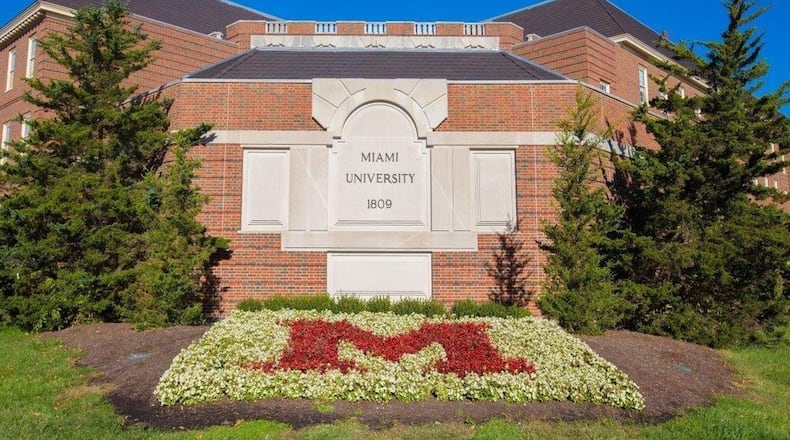Accepting the award were Oxford Mayor Kate Rousmaniere and Miami University Vice President for the Division of Student Life Jayne Brownnell.
“So many good activities and outcomes happen when universities and their hometowns share goals. It’s terrific to have the ITGA Larry Abernathy award publicly recognize the collaborative efforts of Miami University and the City of Oxford to change the narrative about our college town to one of health and wellness,” Rousmaniere said. “We intentionally conceived this to broadly encompass the promotion of physical and mental health as well as a healthy economy, healthy climate and economic and community health.”
The award comes with a $500 award for both the city and university and was the result of an application detailing the joint efforts toward healthy living in the community in those four areas and a video showing some of those efforts with an introduction by the mayor and Miami President Greg Crawford and Dr. Renate Crawford, university ambassador.
Rousmaniere credits President Crawford with the vision of making Oxford the healthiest college town in America when he first came here as president and seeing that the university and city work cooperatively in reaching that goal.
“The association exists to strengthen university and community partnerships through a network of resources and professionals sharing practices and solutions,” the university noted in a press release about the Larry Abernathy Award. “The focus is to professionally develop opportunities for municipal and university communities working together.”
Joint efforts toward the goal have made great strides in the past three years with the collaboration drawing on the social service infrastructure and various individual and institutional initiatives, among them the Coalition for a Healthy Community Oxford, Ohio.
Among some of the accomplishments of the effort have been:
• Students reported declines in risky drinking behavior.
• 600 citizens of Oxford were trained in mental health first aid.
• The passage of a $10 million levy for 12 miles of recreational trails.
• New bike lanes and city e-scooter contract decreasing reliance on cars.
• Ongoing community-university efforts around climate change, like pollinator gardens, food composting and increased recycling.
About the Author
